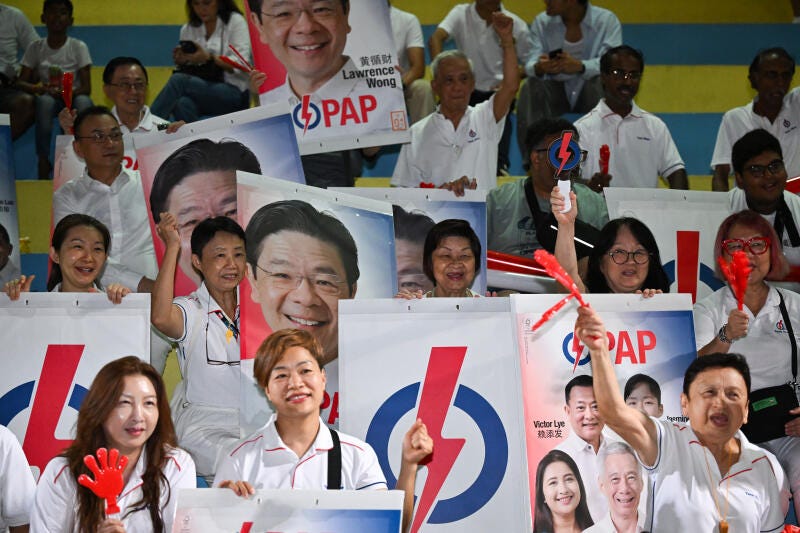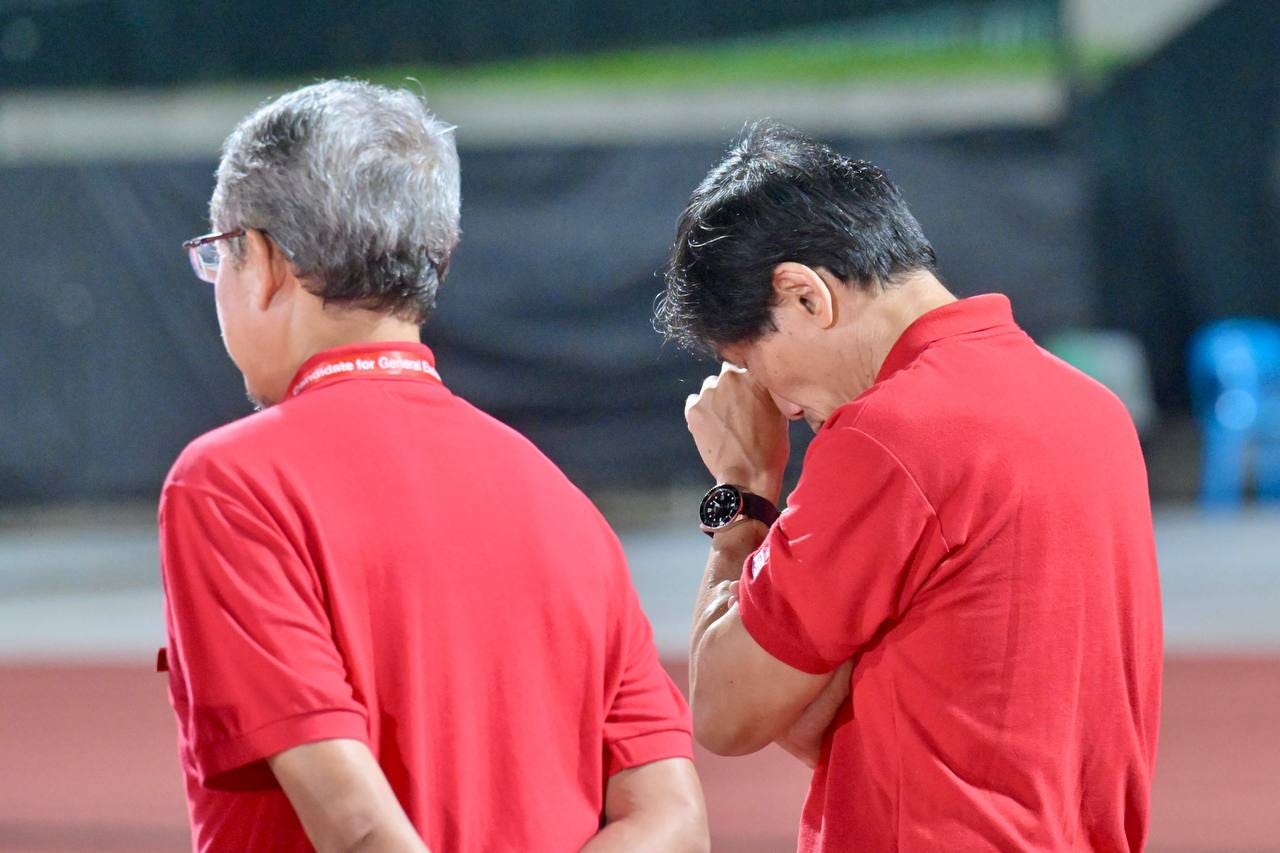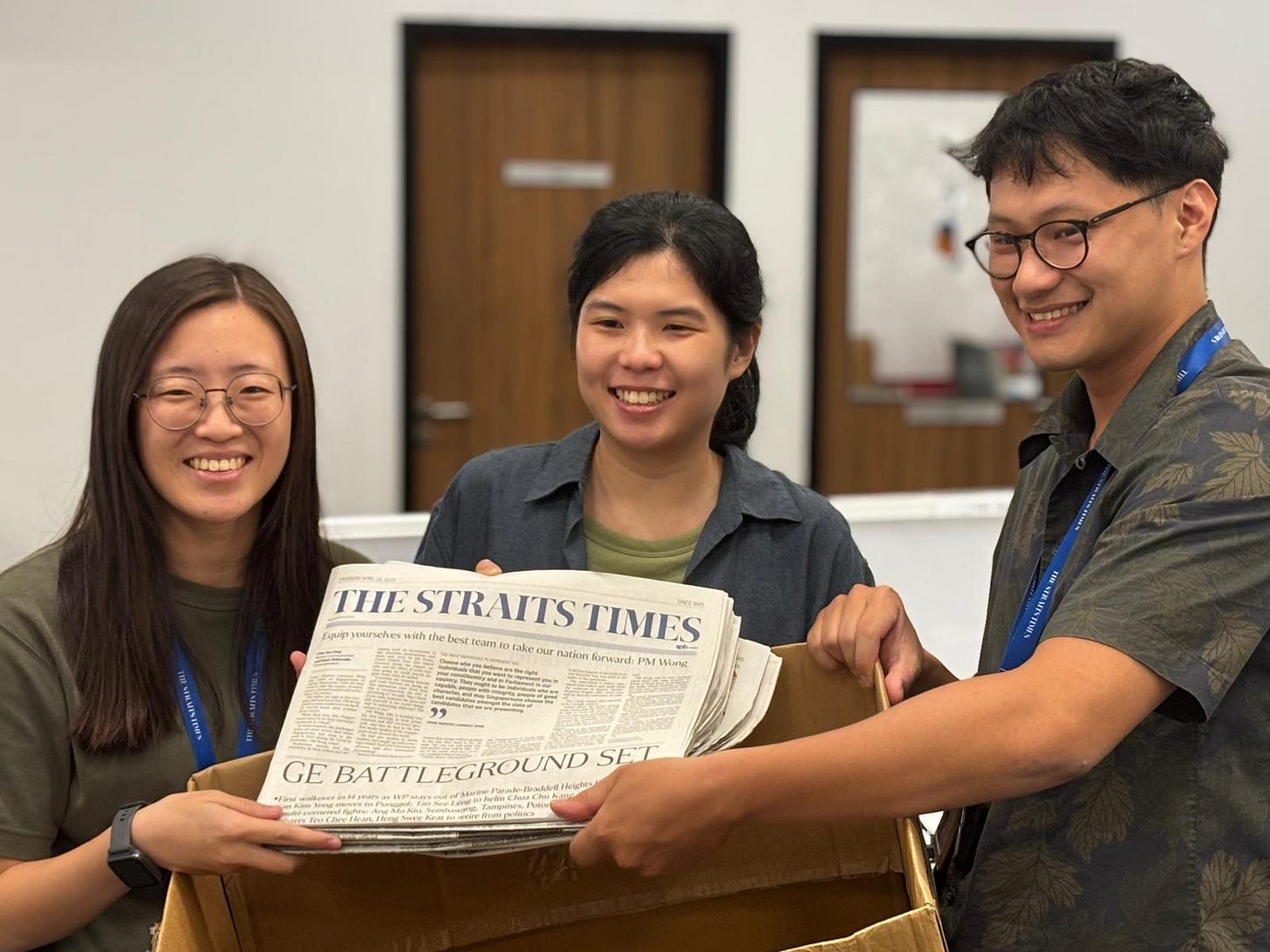Good May 4 afternoon to everyone,
Many of you may have got more sleep than expected, with all official vote counts coming in before 2am. No recounts this year, though some contests went down to the wire.
The results have shown a resounding – some have said landslide – mandate for Prime Minister Lawrence Wong and his ruling People’s Action Party, which improved on its 2020 vote share by four percentage points to 65.57 per cent.
The PAP held all its constituencies and won 87 seats, while the WP kept its 10. Across the board, both parties generally maintained or improved on their vote margins.
But other opposition parties struggled. Only SDP chief Chee Soon Juan in Sembawang West got above 40 per cent.
Let’s get into the results:
The man of the hour
The news: The PAP romped to victory with 65.57 per cent of the vote.
The party improved overall, with some shocking margins of victory including an 81.03 per cent win in Tanjong Pagar GRC.
The PAP also won some contests which looked extremely shaky during the hustings, including Jalan Kayu SMC by a few percentage points, and Tampines GRC by another slim margin.
It also held the newly-formed Punggol GRC, which was the site of fierce campaigning on both sides.
The take: This is a massive vote of confidence for a new Singapore prime minister. Former PMs Lee Hsien Loong and Goh Chok Tong both saw a dip in the PAP’s national vote share leading their first elections as head of government.
PM Wong has bucked this trend with a strong showing, against a coordinated and calculated WP push to win more seats.
In a 3am press conference, he said he was satisfied with the results, calling it a “clear and strong mandate” that puts the nation in a better position to face a turbulent world.
It was exactly what the PAP had called for and may even give the party wiggle room to push forward tougher-to-swallow policies in its next term.
Some may see this general election as a referendum on PM Wong’s leadership style and Forward Singapore agenda.
His face adorned every other lamp post and he was quite literally “everywhere”, going from GRC to GRC to shore up support for his teammates.
How much of this victory can be attributed to PM Wong personally will be the subject of many postmortems.
What is for sure is that as the face of the campaign, the mandate has cemented his leadership of the party and the country.
Well-Played WP
The news: The WP retained its 10 seats in Aljunied, Hougang and Sengkang, and either maintained or improved its vote share from the previous round.
It will also be offered two NCMP seats, potentially expanding its force in Parliament to 12 (if they accept them).
WP put up strong fights in the new constituencies that it ventured into – Jalan Kayu SMC, Punggol GRC and Tampines GRC, performing better in those areas than East Coast GRC that it was returning to for the fifth time.
Overall it got 50 per cent of the vote across all the constituencies it contested, in a performance similar to its 2020 outing.
This showing comes after the party made choices in its deployments that drew some ire – not contesting in Marine Parade-Braddell Heights GRC, creating an eventual walkover – which the party said was part of a strategy to focus on seats it thought it had a good shot in.
The take: The WP’s three wins were never really in question, and its results there show the party has taken root in these constituencies.
Aljunied GRC – so close in 2015 that it forced a recount – is now a stronghold. Sengkang GRC appears to be getting there – improving four percentage points to a 56 per cent victory this election.
This may not be the result the party wanted after fielding what it called its “most promising slate ever”. But it has definitely entrenched its status as the second-biggest and most relevant political party in Singapore, and the only one capable of mounting a serious electoral challenge against the PAP.
The WP is here to stay, at a time when other opposition parties are doing some soul-searching on their continued relevance.
Still, the result will throw up some questions.
It may have to relook how it will achieve its medium-term goal of one-third of the seats in Parliament. Holding 10 out of 97, it is still some ways away.
Best? Of the rest?
The news: All other opposition parties did poorly. None cracked 40 per cent of the vote in the constituencies they contested, overall and as a party.
Only SDP’s Chee did with 46.81 per cent in a single seat – but did not manage to get close enough for an NCMP spot (he missed it by less than a percentage point). The party continues on its almost-three-decade quest to return to Parliament.
The PSP, the breakout party of 2020, got such a drubbing at the polls that secretary-general Leong Mun Wai said the results were “very shocking”, and that the party will “study seriously and humbly into our failure”.
In West Coast-Jurong West GRC – where the party had fielded its A-team of founder and chairman Tan Cheng Bock, together with Leong, Hazel Poa and two others – the team lost 10 percentage points in vote share from 2020, when it gave the PAP its narrowest win of the race.
RDU did not live up to its hopes for a breakout after fielding the second largest line-up among opposition parties this year. It achieved an average 23.4 per cent among the constituencies it contested. Next in line, the PAR fared even worse, while some of the rest did not even attain the 12.5 per cent needed to get back their deposits.
The take: After GE2020 where opposition parties saw gains across the board, this showing has been disappointing.
We may see a thinning of the herd in the next five years. The SPP’s Steve Chia said the party would consider deregistering, while the NSP will struggle to find any leg to stand on after scraping just 3,121 votes across the two multi-cornered fights it took part in.
The underperformance of the rest of the field could mean a weakening of the old Singapore political truism that a certain percentage of the electorate (usually pegged at 30 per cent) will vote opposition no matter what.
This speaks to what many have been saying: that the Singaporean voter is more discerning and educated than ever.
It is also worth highlighting that these parties are smaller and have fewer resources to mount ground and media operations – a limitation which the PSP has spoken about before. The election expenditure reports will tell us more.
It is the first time ever that a GRC has seen an over 80 per cent vote share win, the closest it has come to has been 79++ per cent in past elections. The PAP’s Tanjong Pagar team, led by Education Minister Chan Chun Sing, will bring home this crown from the GE2025 spoils.
This is also the first election ever that saw vote shares of 0 per cent (when rounded down). The NSP and the PPP both achieved this feat in Tampines GRC, where it was like neither of them existed in the PAP-WP fight.
There were no Pofma orders issued this general election. We saw 20 in 2020.
The two independent candidates in Radin Mas and Mountbatten actually outperformed many of the candidates running under party banners. Darryl Lo took home 23.5 per cent while Jeremy Tan had 36.2.
It’s been an action-packed two weeks. We’re planning to post-mortem the GE extensively, so please send us questions that you want answered.
















I am shocked here by the results in NYC! Amazing coverage so far! Keep it up unpacked team!
Let's see if my overseas vote will make a difference 😉
I'm curious how opposition supporters rationalise their support for opposition parties that only critise and offered no solutions/ridiculous solutions.